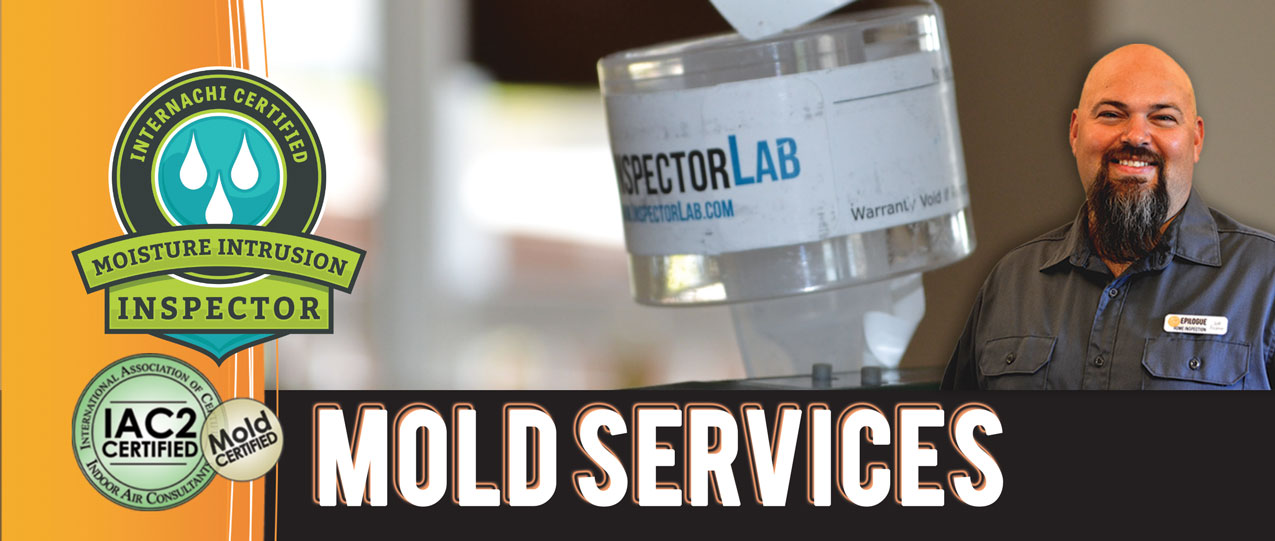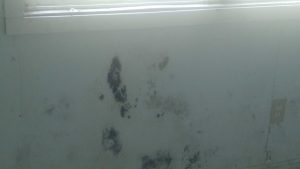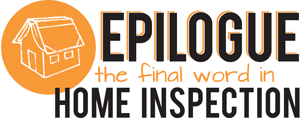
Why get a mold inspection?
- Recent Water Damage

- Visible Growth
- Strange Smell
- Health Complications
- Landlord/Tenant Disputes
- Looking For Peace of Mind
- Real Estate Transaction
Mold is all around us, indoor and out, in various levels of concentration. A visual observation of mold doesn’t identify your problem, and test kits off the self provide only a partial perspective. Because not all mold is dangerous, our lab will identify mold species and determine whether the mold in your environment is at an acceptable concentration level. We will help you find out if you have a problem, we’ll identify its source, and we will provide recommendations for how to resolve the issue. Epilogue Home Inspection’s mold service combines experience and lab results to provide a practical narrative that offers hard evidence about what is going on in your home or business.
What we do:
We provide a limited inspection for mold or fungi which is performed to visually inspect for signs of mold or mold-like substances, fungi or growth. It also includes air tests performed outside the home and inside the home. The lab fees associated with the air tests are included.
Basic Mold Inspection: A basic mold inspection by Epilogue Home Inspection includes a full visual assessment of a property’s readily accessible areas with the use of specific tools in order to identify any possible red flags that could be causing mold growth. It also includes the collection of two air samples. The first air sample is taken outside and serves as a control to determine the normal mold level of the property’s geographic location and to ensure that equipment and supplies are working properly. The second air sample is taken inside at the area of greatest concern agreed upon by the client and the inspector. This inspection will show if mold is present in the area tested.
Expanded Mold Inspection: An expanded mold inspection will provide a better overview of the structure. In general, one sample is recommended per floor, for every 1,000 square feet, and in each area of concern. These air samples will determine the presence of elevated mold conditions and whether issues are localized or widespread.
Detailed Mold Inspection: A detailed mold inspection includes the collection of surface samples and/or in-wall air samples. This is recommended if compromising data is discovered during a basic or expanded mold inspection. If the problem area is large enough, multiple samples may be suggested to establish precisely what has been contaminated. When lab results establish the source of elevated mold spores, proper repair protocols are recommended.
